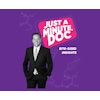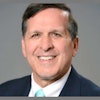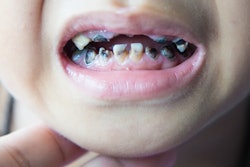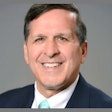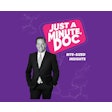
It's a familiar problem for dental professionals: the patient who consults too often with "Dr. Google." Misinformation on the internet has some patients challenging the experts. One presenter at the Chicago Dental Society Midwinter Meeting advised meeting patient demands with effective communication.
Thanks to the internet, parents of young dental patients are coming into dental practices and questioning treatment recommendations ranging from x-rays to topical fluoride. How clinicians deal with patients who subscribe to the Dr. Google phenomenon can make or break a dental practice, said presenter Dr. Greg Psaltis, a pediatric dentist in Olympia, WA.
"The level of distrust in all professionals is at an all-time high," Psaltis said. "I can't say with certainty that dentists are directly involved, but for any individual who uses certain television stations or websites as his/her primary source of information, it has become an uphill struggle for anyone in the scientific community to have the credence we once had."
In 1998, 10,000 Google searches were completed each day. By 2019, the number of Google searches reached 63,000 -- per second. Unfortunately, this has become the primary source of information for most people, Psaltis said.
Additionally, the pandemic revealed dramatic divisions in trusting public health recommendations made by scientists and healthcare professionals. In some cases, the result has been active misinformation campaigns to build up antiscience viewpoints.
"The internet has become deeply pervasive that well-intentioned parents want to be fully educated on issues that involve their children," Psaltis said. "As a rule, people will seek out the information that they already believe so that hearing from a dentist that their child needs fillings/crowns/orthodontics, they will look to verify this and if finding a contrary source, they will raise the issue."
In pediatric dentistry, the most questioned recommendations are restorative and esthetic materials, as well as the necessity of x-rays. For example, parents often don't want their children to receive stainless steel crowns, he said. Also, fluoride remains amazingly controversial, according to Psaltis.
Building trust with patients
Though fact sheets and other resources were once effective, building trust is the best way to deal with parents and patients with strong opinions related to recommended treatments, Psaltis said.
"This personal relationship will usually go farther to sway a parent's thought process than a mountain of fact sheets, which could be considered propaganda," he added.
Additionally, trying to change another person's opinion likely will make that individual "more resistant," he said.
If dentists don't try to build trust with these individuals, they may face more than potentially losing them as patients.
"In my mind, the greatest ramification is losing sight of one's ethics," Psaltis said. "When dentists accede to the uneducated wishes of parents, they have lost their professional integrity and, for me, their ethics."
Short-term or long-term challenge?
Will overzealous parents and patients continue to question dentists' recommendations and expertise? Psaltis is unsure.
"As social media -- and all other forms of media -- have become increasingly influential, I am concerned about whether or not there will be an 'other side' of this issue," Psaltis said.
However, Psaltis is not hopeless, noting that people in the U.S. are resilient, finding their way back after other crises, like the flu epidemic in the 1900s and the aftermath of 9/11.
"I believe we will again find that science is our best source for making reasonable and correct decisions," he said. "I remain hopeful that the loudest voices in the room will ultimately fade and common sense and caring for our entire society will return to our lives."

